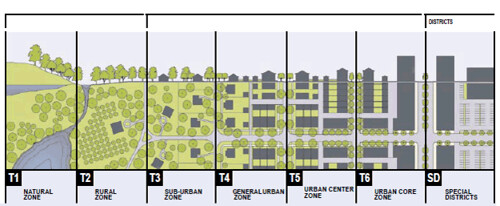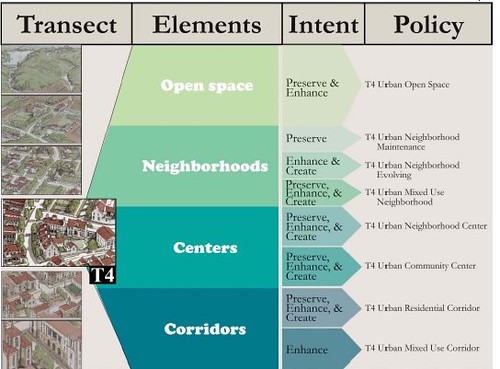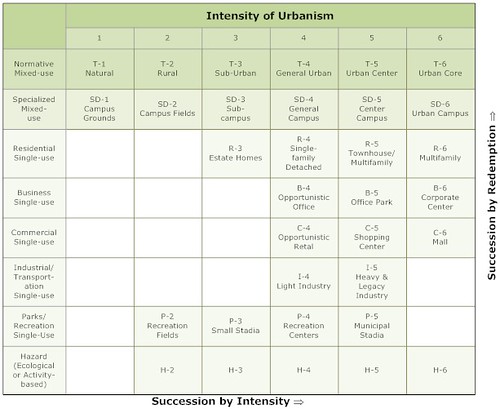Frustrations about DC's planning and zoning process in the context of the Zoning Rewrite: Part 1, the basic organizing approach
Since 2007, DC has been engaged in a zoning update process, in response to the approval of the 2006 Comprehensive Land Use Plan.
The DC Office of Planning has submitted specific changes to various sections of the Zoning Code--which was approved in 1958 and has many provisions that are suburban rather than urban promoting.
Last night, I testified in favor of broadening the approval of accessory dwelling units and apartments.
One of the great things about going to hearings is listening to the testimonies of other people, who often make important points, many of which I hadn't considered.
The problem with this though is that for the most part, neither the planning process or the general operations of DC's Office of Zoning or Zoning Commission or Board of Zoning Appeals are designed to operate as a kind of indicator of problems-opportunities-research-analysis function that can generate understandings about planning, building regulations, and zoning problems (referred to as "unintended consequences" by Commission Chair Anthony Hood) that can be addressed in structured, robust systemic improvement.
This came up with lots of points raised by Commissioners in questions to the Office of Planning, but I didn't think that the potential import of some of these questions was adequately captured, and in all likelihood will go for nought.
I still believe that a couple blog entries I've written on zoning related issues are totally and completely relevant to the process now, and shed light on the "unintended consequences" that are going to result from the current process, because it has been inadequately developed with "the wrong" guiding principles.
While it turns out that some of the details in this piece, "DC and the zoning rewrite and the approach not taken," are not exactly correct, what is correct is that the Office of Planning considered taking an approach to reconceptualizing the Zoning Code around land use context and sub-use, based on the hybrid approach development by Nashville-Davidson County, Tennessee. But they thought it was too controversial and so they never presented it to the Rewrite Advisory Committee.
Nashville uses the New Urban transect as the basic guide to what we might call districts based on density and intensity, and then have a number of subzones of the T districts based on a finer grained approach to use. Traditional new urbanists don't like this approach because it isn't what the "Smart Code" recommends, but I think it is a more practical rendering of the transect as a way to shape land use, zoning, and building regulations in the context of an existing built environment where uses and subdistricts are already present.
The New Urbanist transect. In DC T4-T6 districts are the dominant land use context.

Another visual of the concept, from the children's book, The House Book, by Keith DuQuette.

The Nashville approach to creating zoning subdistricts for the T4 density district.

Bruce Donnelly, another new urbanist, has a slightly different approach, outlined in the table below.

I mention this because the idea that every neighborhood is so unique that it deserves to create its own zoning overlay seems absolutely f*ing nuts to me. All neighborhoods are unique, but few are so exceptional that they need such specific zoning codes. It seems like tons of unnecessary work to me.
The Nashville or Donnelly approach makes so much more sense.
Labels: land use planning, neighborhood planning, transportation planning, zoning



2 Comments:
last night I talked with a member of the CHRS-[ who are almost invariably old people] and as usual- I heard the scathing ridicule of changing the height restrictions- again- these people have absolutely nothing in mind for the future of the city and they live in complete denial. It is a wonder that an un-elected body can wield such influence and control over a large portion of our city...
Thank you for providing such a valuable information and thanks for sharing this matter to get Online pharmacy from Dose Pharmacy medicine.
Post a Comment
<< Home